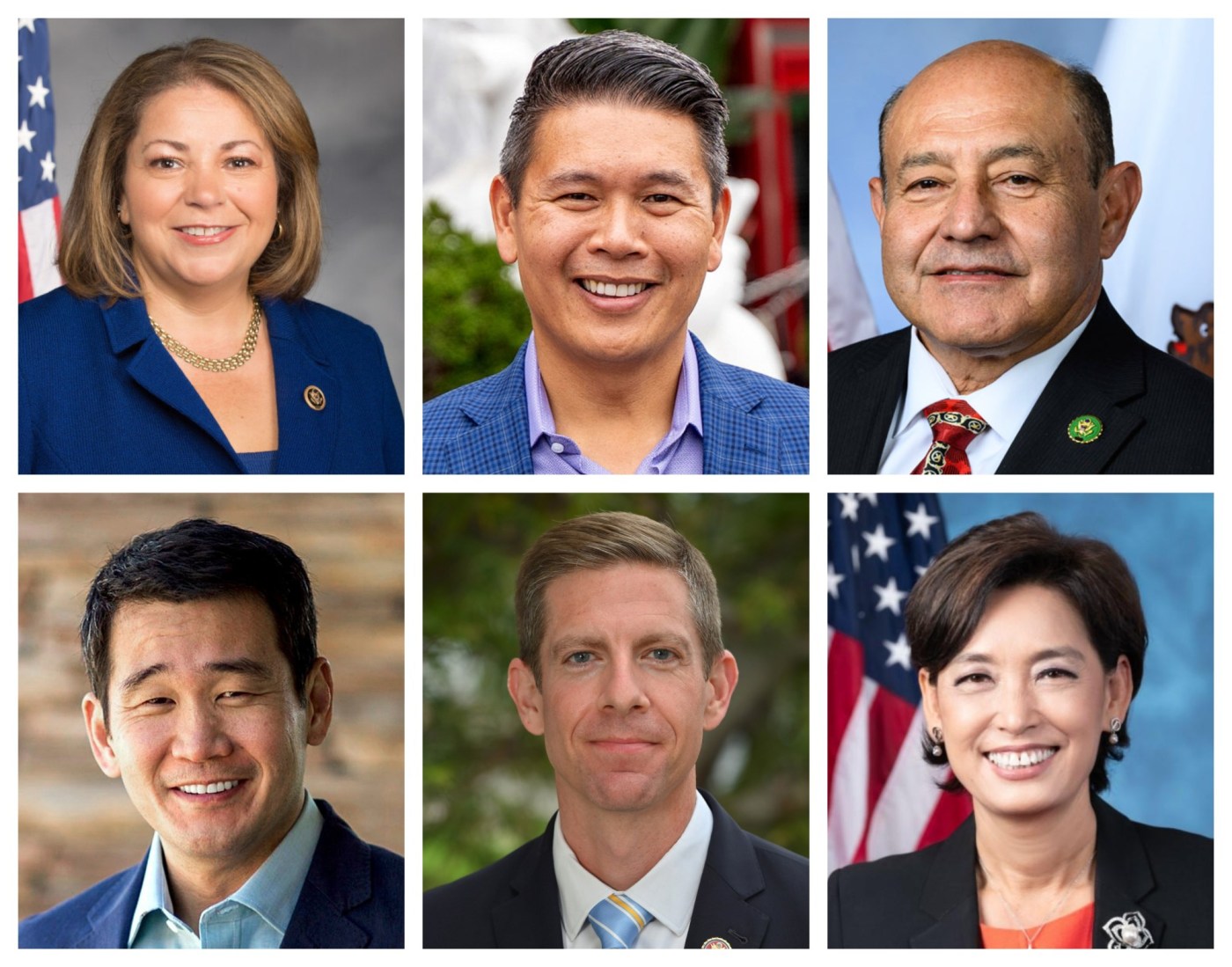After details of the U.S. Senate’s deal to end the lengthiest government shutdown began to emerge, many House Democrats were incensed to find it did not include an immediate fix for health care subsidies set to expire at the end of this year.
And that includes ones who represent Orange County.
Republicans and Democrats in Washington, D.C., have been at loggerheads over how to end the shutdown, which has disrupted federal assistance programs and services and is the longest in history. But Sunday night, eight Democratic senators broke with their party and agreed to a bipartisan deal to re-open the government, one that provides funding for SNAP food aid and backpay for furloughed federal workers.
Related: OC House members answer questions on immigration, government shutdown, their votes and more
Yet, the compromise did not include an immediate resolution to the Affordable Care Act health care subsidies that are set to expire at the end of the year — a No. 1 priority for many Democrats during the shutdown negotiations. Instead, the deal said a vote on the tax credits would come in December.
Most of Orange County’s Democratic congressional representatives said a promise of a later vote is not good enough. Reps. Mike Levin of San Juan Capistrano, Dave Min of Irvine, Linda Sánchez of Whittier and Derek Tran of Orange all said they would vote no on the proposal without any concrete health care protections.
Neither of California’s two Democratic senators, Alex Padilla and Adam Schiff, voted for the deal.
The Senate still needs to hold final votes on the bill, and it would then go to the House.
Rep. Lou Correa, D-Santa Ana, did not have a comment on the deal since the Senate still has pending votes. But Rep. Young Kim, Orange County’s lone Republican congressional representative, said she would vote for the deal.
But Orange County’s other four Democratic lawmakers are not on board.
“The Senate’s deal does nothing to protect Americans’ health care,” said Sánchez. “Instead of lowering costs or expanding access, it leaves families paying the price.”
Levin, meanwhile, joined other House Democrats in calling for Senate Democrats to replace Chuck Schumer as their minority leader. He said the New York senator “has not met this moment and Senate Democrats would be wise to move on from his leadership.”
Of the deal, Levin said there was no guarantee that House Speaker Mike Johnson, R-Louisiana, would let a deal extending the Affordable Care Act subsidies to come to a vote.
“So, ‘just trust us, we’ll deal with it later,’ is not a serious plan,” Levin said.
“A ‘promise of a vote’ is a promise that health care will become unaffordable for millions of Americans,” said Min. “This is capitulation, not a deal.”
“The agreement proposed by the Senate fails to meet the urgent needs of our community; affordable health care, food for our kids, public safety and California’s small businesses are on the line,” said Tran. “We cannot expect the American people to continue to bear the burden of this administration’s chaos. If Republicans refuse to make access to health care a priority now, they never will.”
Gov. Gavin Newsom, too, castigated the deal as a “capitulation,” saying: “The American people need more from their leaders.”
Kim, whose district includes Orange, Riverside and San Bernardino counties, blamed Democrats for the shuttered government, saying it’s time for it to reopen.
“This shutdown achieves nothing and hurts hardworking Americans,” Kim said.
“This shutdown was a crisis of their own making, and it must end now,” she added. “I will be voting for this commonsense measure because it’s long past time we open up our government and get back to work for the American people.”
Notably, Kim has backed an earlier proposal to extend the health care subsidies for just one year, through the midterm elections. That proposal, Kim said back in September, “is critical to ensuring that working-class Californians and the most vulnerable in our community can access essential health care coverage as Congress works toward a responsible, long-term solution.”
The health care tax credits have made coverage more affordable for low- and middle-income people who purchase it through state or federal marketplaces. Without an extension, on average, the cost of coverage will more than double next year, according to an analysis from the nonpartisan health policy organization KFF.
A recent KFF survey found strong public support for extending the subsidies.
Overall, 74% of those polled by KFF said they’d like an extension. When broken down by party, 94% of Democrats backed a continuation of the tax credits, as did 76% of independents and 50% of Republicans. The poll noted Republican support has waned since the last survey in September; then, 59% of Republicans supported an extension, along with 92% of Democrats and 82% of independents.
That KFF survey was conducted from Oct. 27 to Nov. 2, by telephone and online about a national sample of 1,350 adults in the U.S. It has a margin of error of +/- 3 percentage points.
According to figures from Levin’s office, some 600,000 Californians who get their insurance through Covered California could lose their insurance if the subsidies are not extended. Nationwide, that figure is about 5 million, Levin said.
The Associated Press contributed to this report.
